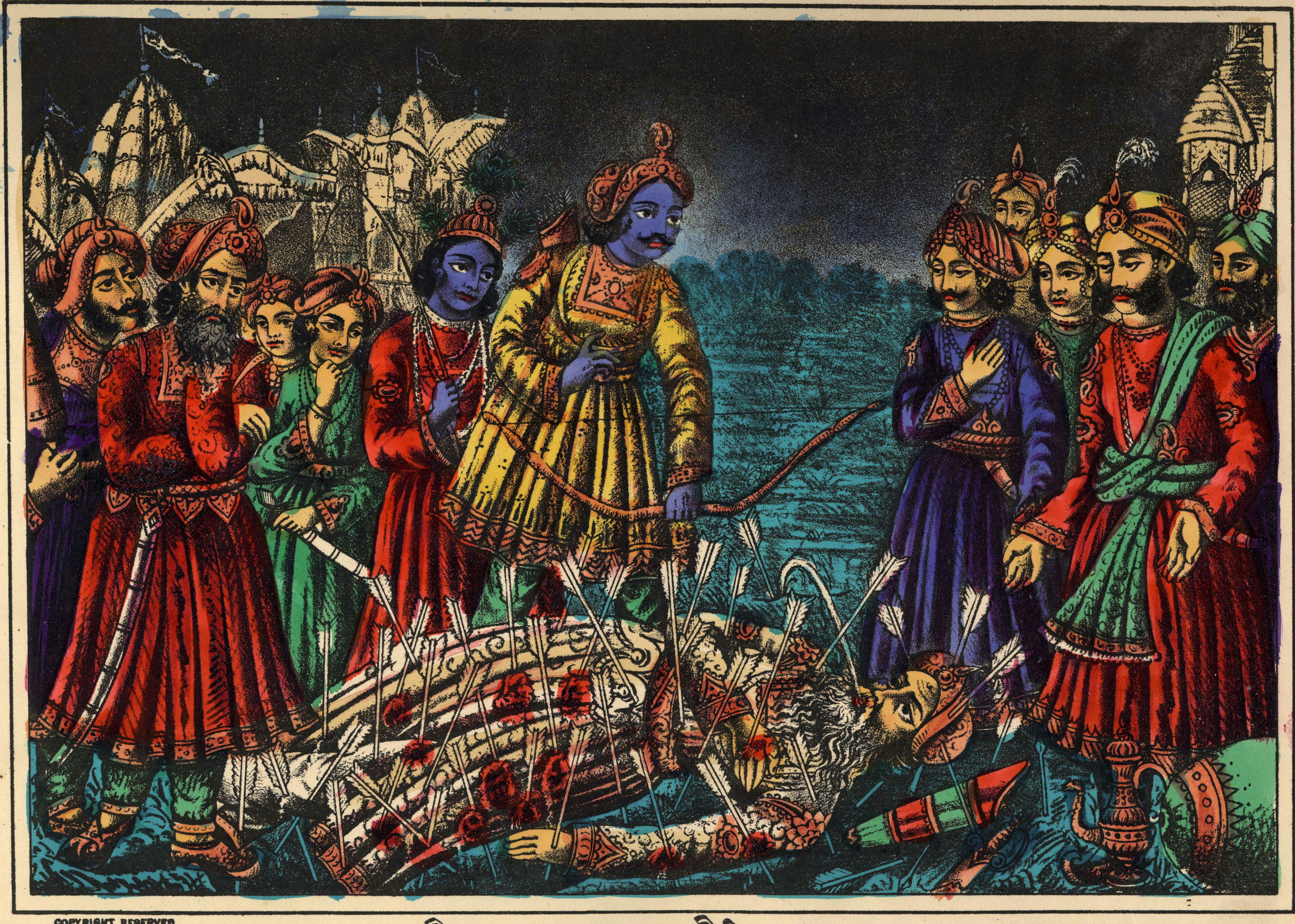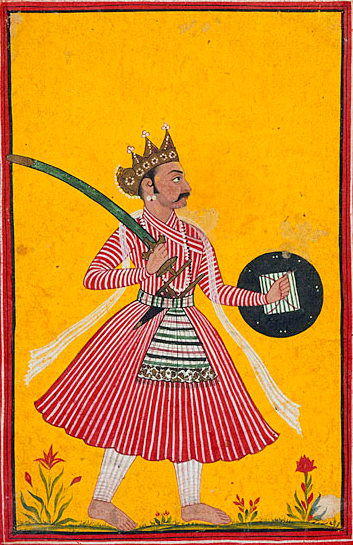Shantanu, re di Hastinapura, stava cacciando nella foresta. Rincorrendo una preda, si ritrovò sulle rive del Gange e si accorse subito di non essere solo. Davanti a lui era infatti apparsa una ragazza misteriosa, bellissima, dalla pelle vellutata, gli occhi nerisissimi, i capelli sciolti sulle spalle. Shantanu se ne innamorò all’istante e, senza saper niente di lei, chiese la sua mano.
La fanciulla accettò l’offerta del potente re, ma ad una condizione: “Non mi farai mai domande né mi ostacolerai, né contesterai o criticherai qualsivoglia mio comportamento.”
 |
| Il Gange a Varanasi |
La vita della coppia scorreva felice e questa felicità accrebbe quando il re seppe che la regina, che in ricordo al luogo in cui gli amanti si erano incontrati venne chiamata Ganga, attendeva un bambino. Ma la felicità durò poco perché la madre, non appena partorito l’erede al trono lo portò sulle rive del Gange e ve lo gettò. Il re rimase sconvolto, ma non disse niente alla moglie memore della condizione che aveva accettato e il cui peso cominciava a comprendere solo ora.
La regina rimase incinta altre sei volte e per altre sei volte condusse il proprio neonato sulle rive del Gange e ve lo gettò senza che il re facesse o chiedesse niente.
Ma quando la regina restò incinta per l’ottava volta e partorì un bel bambino, il re si recò sulle rive del Gange prima della moglie e quando giunse la regina col neonato la fermò. “Perché uccidi i tuoi figli – le disse - perché ti comporti in modo così terribile?”
La regina sorrise, “hai rotto il tuo giuramento, vuol dire che hai proprio bisogno di questo figlio, ecco tuo figlio, è salvo, ma mi perderai, così le maledizioni si sono adempiute.”
Il re chiese spiegazioni e la regina gliele fornì. Lei era davvero la dea Ganga, ma in una precedente vita quando ancora mortali e dei vivevano insieme, Shantanu, che allora aveva il corpo del re Mahabhishek, alla corte di Indra si innamorò di Ganga. Un mortale, seppur re, non poteva unirsi ad una dea e pertanto gli dei maledirono i due amanti imponendo a entrambi di rinascere come mortali. In quella loro nuova forma si sarebbero potuti amare. E così era avvenuto.
La seconda più terribile maledizione riguardava i figli di Ganga, tutti, tranne uno, uccisi appena erano nati.
In realtà gli otto figli di Shantanu e di Ganga non erano altro che le reincarnazioni degli otto fratelli Vasu i quali in una precedente vita per compiacere le loro mogli avevano rubato la vacca Nandini (chiamata anche Kamadhuk o Kamadhenu e citata da Krishna nella Bagavadgita 10.28) che apparteneva al saggio Vasishta. Quando il saggio tornò al sua ashram e capì cosa era accaduto, maldisse gli otto Vasu condannandoli a rinascere come mortali. I fratelli si recarono subito dal saggio a riportare Nandini e a chiedere perdono, ma una maledizione una volta che è stata lanciata non può essere revocata. Vasishta però mitigò la maledizione acconsentendo che per sette fratelli la pena fosse breve, durasse cioè il tempo di una gravidanza e, una volta nati, avrebbero subito potuto riacquistare la libertà. Per l’ottavo fratello invece, colui che materialmente aveva rubato la vacca, la pena sarebbe durata per un’intera vita.
Per questo motivo Ganga aveva ucciso i primi sette figli, per liberarli dalla maledizione, mentre l’ottavo restò vivo e visse una vita gloriosa. Venne chiamato Devavrata, che in sanscrito significa "Devoto agli dei", ma più tardi assunse il nome di Bhishma, il più saggio ed eroico personaggio del Mahabharata.














